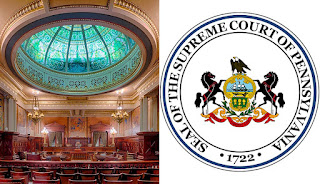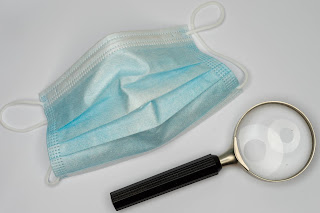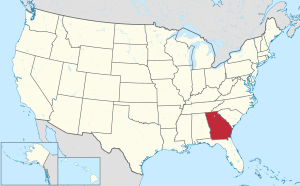Tuesday, November 30, 2021
No Bad Faith Where Plaintiff Failed to Pay Premium and UIM Policy Was No Longer In Effect
In the case of Gonzales v. State Farm Mutual Automobile Insurance Company, No. CV 20-4193 (E.D. Pa. Oct. 21, 2021 Schmehl, J.), the court granted summary judgment in favor of the carrier in a breach of contract and bad faith claim in the UIM/medical payments context.
The court noted that summary judgment was entered in favor of the carrier on the basis that the insured failed make all payments necessary to keep the policy in effect.
Given that the policy was not in effect at the time of the incident at issue, the court found that the carrier could not have breached its coverage obligations.
The court noted that, given that the carrier was granted summary judgment on the breach of contract claim, it followed that carrier was also entitled to summary judgment on the bad faith claims as well.
Anyone wishing to review a copy of this decision may click this LINK.
I send thanks to Attorney Lee Applebaum, the writer of the excellent Pennsylvania New Jersey Insurance Bad Faith Case Law blog for bringing this case to my attention. Attorney Applebaum is with the Philadelphia law firm of Fineman Krekstein & Harris.
Monday, November 29, 2021
Registration Now Open for Upcoming Tort Talk CLE via Zoom - December 21, 2021 at 12:30 p.m.
TORT TALK
Pennsylvania Supreme Court Addresses Parameters of Coordinate Jurisdiction Rule
At the Pennsylvania Supreme Court level, the Court in this decision found that a second judge’s Order allowing the amendment to a first judge’s Order necessarily conflicted with the first Order. The Supreme Court also found that the second decision by the second judge was actually precluded by the wording of the first Order that had been entered.
The Pennsylvania Supreme Court additionally confirmed that the coordinate jurisdiction rule could not be avoided by any claims that the first Order was erroneous or that there had been some intervening change in the law.
Anyone wishing to review a copy of this decision may click this LINK.
I send thanks to Attorney James M. Beck of the Philadelphia office of the Reed Smith law firm for bringing this case to my attention.
Wednesday, November 24, 2021
HAPPY THANKSGIVING
SENDING BEST WISHES TO YOU
FOR A
HAPPY THANKSGIVING
Grateful for your readership and your contributions to TortTalk.com
Thank you very much.
Dan Cummins
Source of image: Photo by Amy Shamblen on unsplash.com.
Tuesday, November 23, 2021
Sanctions Order Regarding Certificate of Merit Vacated on Appeal
The Pennsylvania Superior Court described its opinion in this case as a “cautionary tale for attorneys or venture outside their area of expertise into unfamiliar specialized area of litigation without educating themselves on the applicable rules and law.”
Anyone wishing to review a copy of this decision may click this LINK.
I send thanks to Attorney Daniel J. Siegel of the Law Offices of Daniel J. Siegel in Havertown, Pennsylvania for bringing this case to my attention.
Monday, November 22, 2021
Another Victory for Carrier in Another Covid-19 Business Interruption Coverage Dispute
In the case of Warrick v. Aspen Am. Ins. Co., No. 2:21-CV-00250-WSS (W.D. Pa. Oct. 15, 2021 Stickman, J.), the court granted a Defendant’s Motion to Dismiss a Plaintiff’s claim for business interruption coverage based upon alleged COVID-19 losses.
According to the Opinion, Warrick is a dentistry business. During the COVID pandemic, the business had a policy with the Defendant insurance company, which included coverage for loss business income under covered circumstances.
The court found that the governmental mitigation orders under the COVID-19 pandemic did not prohibit access to the Plaintiff’s premises and the Plaintiff’s alleged losses did not stem from direct physical damage to its property. The court also found that there was no coverage under the business income, extra expenses, or civil authority provisions of the policy.
Anyone wishing to review a copy of this decision may click this LINK.
Source: “Digest of Recent Opinions.” Pennsylvania Law Weekly (Nov. 20, 2021).
Source of image: Photo by Karolina Grabowska from Pexels.com.
Friday, November 19, 2021
Thursday, November 18, 2021
Pennsylvania Superior Court Addresses Dead Man's Rule
In this decision, the court noted that the Dead Man’s Act provides that one whose interest is adverse to the interest of a decedent is not a competent witness to any matter which occurred before the decedent’s death.
In order for the Deadman’s Rule to apply such that a surviving witness is disqualified, the following three (3) conditions must be met:
First, the decedent must have had an actual right or interest in the matter at issue.
Second, the interest of the witness, and not simply the testimony of that witness, must be adverse.
Third, a right of the deceased must have past to a party of record who represents the decedent’s interests.
The court also reviewed the devisavit vel non exception further provides that witnesses are competent to testify in disputes arising over the passage of property, through will or intestacy, although their testimony might otherwise be rendered in competent through the operation of the general rule under the Dead Man’s Act.
Anyone wishing to review a copy of this decision may click this LINK.
I send thanks to Attorney Daniel J. Siegel of the Law Offices of Daniel J. Siegel in Havertown, Pennsylvania for bringing this case to my attention.
Tuesday, November 16, 2021
Court Grants Trucking Defendant's Motion to Amend its Answer and New Matter to Change Denials to Admissions
The trucking Defendant sought to admit factual allegations of the accident and to further admit that the Defendant driver’s failure to use due care while driving his vehicle on Interstate 380 caused him to rear-end the vehicle in front of him which, in turn, caused that vehicle to rear-end the vehicle that the Plaintiff was driving, and further caused the front of the Plaintiff’s vehicle to hit the vehicle in front of the Plaintiff.
It was noted in the Opinion that, while this proposed amendment was offered up two (2) years after the original Answer and New Matter was filed, no trial date was scheduled in the case and discovery was ongoing.
The Defendant offered up a proposed Order that not only granted his motion but also contained language under which the Defendant driver seeking the court to rule that such admissions shall not be used as any admission of any type of conduct which could serve as the basis for the imposition of punitive damages.
 |
| Judge Terrence R. Nealon Lackawanna County |
In his Opinion, Judge Nealon reviewed the rules regarding pleading, which he confirmed are to be liberally applied. The court also noted that there was no time limit under Pa.R.C.P. 1033 for the filing of any request for an amendment to a pleading.
The court granted the Defendant’s Motion and allowed the amendment but held any decision on the impact of any such amendment on any claim for punitive damages for a later day.
The court noted that the Defendant’s request that the Plaintiff be prevented from making any evidentiary use of the allowed admissions in support of the Plaintiff’s punitive damages claims was not an appropriate consideration relative to the request for leave of court to amend a pleading under Rule 1033. Rather, the court noted that the preclusion of evidence at trial is more properly a subject for a Motion In Limine to be decided by any assigned trial judge.
The court emphasized that any admission that the trucking Defendant would put in his Answer and New Matter would be considered a judicial admission. However, any legal conclusions in the Plaintiff’s Complaint, such as allegations of negligence and/or recklessness, would not qualify as judicial admissions under Pennsylvania law.
Anyone wishing to review a copy of this interesting Opinion by Judge Nealon in the case of Bellersen may click this LINK.
Monday, November 15, 2021
A Few Spots Remain for a Year-End Mediation -- Please Consider Scheduling Today
SCHEDULE YOUR END-OF-THE YEAR MEDIATION NOW
CALL (570) 319-5899
or
EMAIL dancummins@Cumminslaw.net
Friday, November 12, 2021
Court Rejects Defendants Petition to Open Default Judgment
This matter arose out of claims by a Plaintiff-property owner who asserted that a Defendant developer trespassed and encroached upon her property during the Defendants’ construction activities on adjacent properties.
A central issue in this case was whether service of the Plaintiff’s Complaint was proper. After reviewing the record, the court found that service was indeed proper.
Applying the 3-prong test for the opening of a default judgment, the court noted that the Defendant would have to show that (1) the Petition to Open the Judgement was promptly filed, (2) that the Defendant had a meritorious defense, and (3) that there was a reasonable excuse for the Defendant’s failure to answer the Plaintiff’s Complaint in a timely fashion.
The court reiterated that the Plaintiff had made proper service. The court also found that the Defendants could not meet the third prong of the test in that they did not have a reasonable excuse failing to file an Answer for over twenty-one (21) months.
The court found no basis for the opening of the default judgment and the Defendants’ Petition was dismissed. The trial court issued this Rule 1925 Opinion requesting that the Superior Court affirm its decision.
Anyone wishing to review a copy of this decision may click this LINK.
Source: “Digest of Recent Opinions.” Pennsylvania Law Weekly (Sept. 28, 2021).
Wednesday, November 10, 2021
Congratulations to Attorney Joe Price and Attorney Judy Price -- Honorees for the 13th Annual Lackawanna Pro Bono Gala (Tomorrow Night - Virtually)
Tuesday, November 9, 2021
Motion To Compel Discovery on Meaning of Virus Exclusion in Covid-19 Business Interruption Coverage Case Denied
According to the Opinion, the Plaintiff owned a restaurant and bar which was subjected to governmental shutdown orders during the COVID pandemic. Thereafter, the business sought business interruption coverage from its carrier.
According to the Opinion, the court found that the insurance policy contained a plainly worded virus exclusion.
As noted above, during the course of this declaratory judgement action regarding coverage, the court denied the Plaintiff’s efforts to compel discovery relative to the meaning of the virus exclusion.
Anyone wishing to review a copy of this decision may click this LINK. The Court's companion Order can be viewed HERE
Source: “Digest of Recent Opinions.” Pennsylvania Law Weekly (Oct. 8, 2021).
Expert Testimony By Nurses on Future Medical Expenses Allowed
The Defendants asserted that certain medical cost projections from which these experts’ opinions derived were based upon a source, known as “Context4Healthcare,” that, according to the Defendant, was similar to another source (Fairhealth.org) that had been found by two other courts to be unreliable.
The court in this matter reviewed the record before it, including the Plaintiff’s arguments that the Plaintiffs’ experts had relied upon other sources as well to render their opinions. In the end, the court noted the Plaintiff's experts had relied upon multiple sources of information and that the Defendants were free to cross-examine these experts on their reliance upon the data in question.
Anyone wishing to review a copy of this decision may click this LINK.
I send thanks to Attorney Joshua D. Baer and Attorney Andrew Baron, both of Simon & Simon, P.C. in Philadelphia for bringing this case to my attention.
Monday, November 8, 2021
Judge Nealon of Lackawanna County Discusses Discovery Sanctions and the Code of Civility
This matter arose out of a motor vehicle accident. During the course of discovery, a dispute arose over the Defendant’s apparent refusal to respond to discovery requests seeking liability insurance documents.
Despite the trial court issuing multiple Orders compelling the Defendant to respond to various discovery requests, the requested information was allegedly not forthcoming. As such, the Plaintiffs filed a Motion for Sanctions.
In reviewing the Motion for Sanctions, the court reviewed the current status of Pennsylvania law with regards to the imposition of sanctions under Pa. R.C.P. 4019 when a trial court’s discovery Orders are not obeyed.
Judge Nealon noted that, under Pennsylvania law, while the trial court judges are afforded great discretion in fashion and remedies or sanctions for violations of discovery Rules and Orders, the law does require that the court select a punishment that “fits the crime.”
Judge Nealon reviewed the five (5) separate factors that are considered to be a necessary part of the consideration when reviewing a request for sanctions based upon a discovery violation.
Those five (5) factors are:
(1) the nature and severity of the discovery violation;
(2) the defaulting party’s willfulness or bad faith in failing to comply with discovery;
(3) the resulting prejudiced to the other party;
(4) the non-offending party’s ability to cure any prejudice; and,
(5) the number of discovery violations by the non-compliant party.
As such, the court granted the Plaintiff’s Motion and awarded counsel fees and reasonable expenses in connection with the preparation of the Motion for Sanctions. The court did grant the Defendant the right to contest the reasonableness and necessity of the fees that may be put forth by the Plaintiff.
The court also noted that the conduct at issue in this case was violative of the Pennsylvania Code of Civility’s aspirational provisions advocating civil, respectful, and courteous discourse, and also discouraging acrimonious speech and disparaging personal remarks.
Anyone wishing to review a copy of this decision may click this LINK.
Friday, November 5, 2021
Lackawanna Pro Bono Gala (Virtual) Is Next Week
Eastern Federal District Court Transfers Trucking Accident Case to State of Georgia Where Accident Happened
The Plaintiff filed the cause of action in the Eastern Federal District of Pennsylvania, i.e., in Philadelphia.
As noted above, the court rejected the Plaintiff’s arguments and granted the Defendants’ Motion to Transfer.
Anyone wishing to review a copy of this decision may click this LINK. The Court's companion Order can be viewed HERE.
Source: “Digest of Recent Opinions.” Pennsylvania Law Weekly (Oct. 14, 2021).
Thursday, November 4, 2021
Court Allows Discovery of Forgery Based Evidence in Support of Negligent Hiring, Supervision, and Retention Claim in an MVA Case
According to the Opinion, this case arose out of a motor vehicle accident involving a Defendant school bus driver. In the Plaintiff’s Complaint, the Plaintiff alleged claims of negligent hiring, supervision and/or retention of the Defendant bus driver by the Defendant bus company.
During the course of discovery, the Plaintiff requested signature exemplars from the Defendant driver and another employee of the busing company based upon a purported suspect appearance of the bus driver’s signature on four (4) separate documents within his employment file.
The court noted that, during the course of discovery, the Defendant bus driver questioned the veracity of his signatures at his deposition and even noted in one (1) instance that his name was misspelled.
The Defendants objected to the discovery by arguing, in part, that this case centered on injuries related to a subject motor vehicle accident and not to forgery issues.
The court noted that the Defendant’s position failed to consider the Plaintiff’s negligent hiring cause of action against the Defendant bus driver. In this regard, the court noted that, in her Complaint, the Plaintiff alleged that the bus company was negligent not only in hiring the bus driver but for failing to train him properly and for allowing him to operate a commercial motor vehicle without the required qualifications.
Judge Minora noted that the documents in the bus driver’s personnel file raised questions as to the authenticity of the bus driver’s signature. Some of these documents purported to certify the bus driver’s receipt from his employer of certain written materials, training documents, and policy documents, the receipt of which by a commercial driver was required by federal regulations.
While the court did essentially grant the Plaintiff’s Motion to Compel the production of documents with exemplar signatures, the court limited the scope of the number of documents that were required to be produced by the Defendant.
Anyone wishing to review a copy of this decision may click this LINK.
Wednesday, November 3, 2021
COVID-19 Business Interruption Coverage and Bad Faith Claims Dismissed
In the case of Round Guys Brewing Co. v. Cincinnati Ins. Co., No. CV-20-6252 (E.D. Pa. Sept. 22, 2021 Sanchez, J.), the court found that no coverage was due in this COVID-19 business loss coverage case.
After finding no coverage due, the court also dismissed the Plaintiff’s claim for bad faith after noting that the carrier’s position in denying coverage in this case was widely supported by the case law. As such, the court noted that the carrier’s denial of coverage in this business interruption coverage case was reasonable and that the Plaintiff had failed to adequately pled the elements of bad faith.
Anyone wishing to review a copy of this decision may click this LINK.
I send thanks to Attorney Lee Applebaum of the Philadelphia law firm of Fineman Krekstein & Harris and the writer of the excellent Pennsylvania New Jersey Insurance Bad Faith Case Law blog for bringing this case to my attention.
Eastern District Federal Court Dismisses UIM Bad Faith Claim Due to Insufficient Facts
At issue were the Plaintiff’s claims of an insufficient claims investigation by the carrier and other poor claims-handling allegations.
While the court emphasized that a bad faith claim against an insurance company can include claims of a lack of investigation, unnecessary or unfounded investigation, failures to communicate with an insured, or failure to properly acknowledge or act upon a claim, as well as other poor claims handling assertions, a Plaintiff cannot merely say that a carrier acted unfairly but instead “must describe with specificity what was unfair.”
Judge Jones additionally noted that a Complaint alleging bad faith must specifically include facts to address who, what, where, when, and how the alleged bad faith conduct occurred. The court reiterated that bare bones bad faith pleadings in the federal district courts of Pennsylvania are routinely dismissed.
Turning the Complaint before it, the court in this Kelly case found that the pleadings by the Plaintiff were inadequate and were devoid of facts necessary to infer a plausible bad faith claim. The court noted that, other than the date of the accident, the Complaint did not contain any references to dates or timespans with regards to allegations that the carrier’s alleged actions were untimely.
The court additionally noted that the Plaintiff’s claims that the carrier’s lack of a thorough claims assessment was unreasonable but that the Plaintiff did not provide any indication as to how these alleged deficiencies were unreasonable.
The Complaint was also found to lack any factual content to suggest that the Defendant carrier lacked a reasonable basis for denying the UIM coverage or that the Defendant knew or recklessly disregarded the lack of any reasonable basis, which is the bad faith standard.
The court therefore granted the Motion to Dismiss filed by the carrier but allowed the Plaintiff the right to amend.
Anyone wishing to review a copy of this decision may click this LINK. The Court's companion Order can be viewed HERE.
I send thanks to Attorney Lee Applebaum of the Philadelphia law firm of Fineman Krekstein & Harris for bringing this case to my attention. Attorney Applebaum is also the creator of the excellent Pennsylvania and New Jersey Insurance Bad Faith Case Law blog.
Monday, November 1, 2021
Please Consider Scheduling Your Year-End Mediation To Bring Your Case to a Close
SCHEDULE YOUR END-OF-THE YEAR MEDIATION NOW
CALL (570) 319-5899
or
EMAIL dancummins@Cumminslaw.net
































